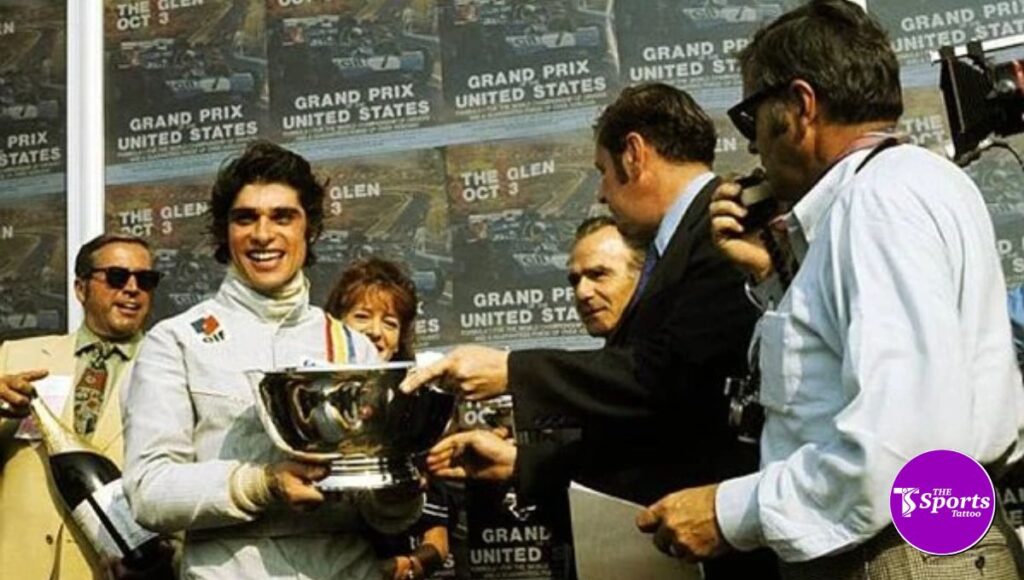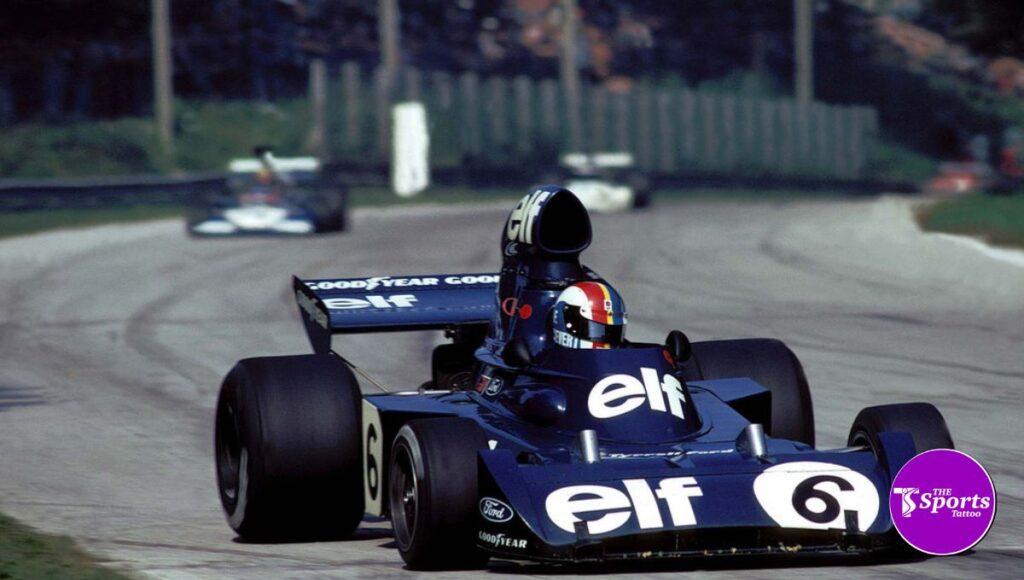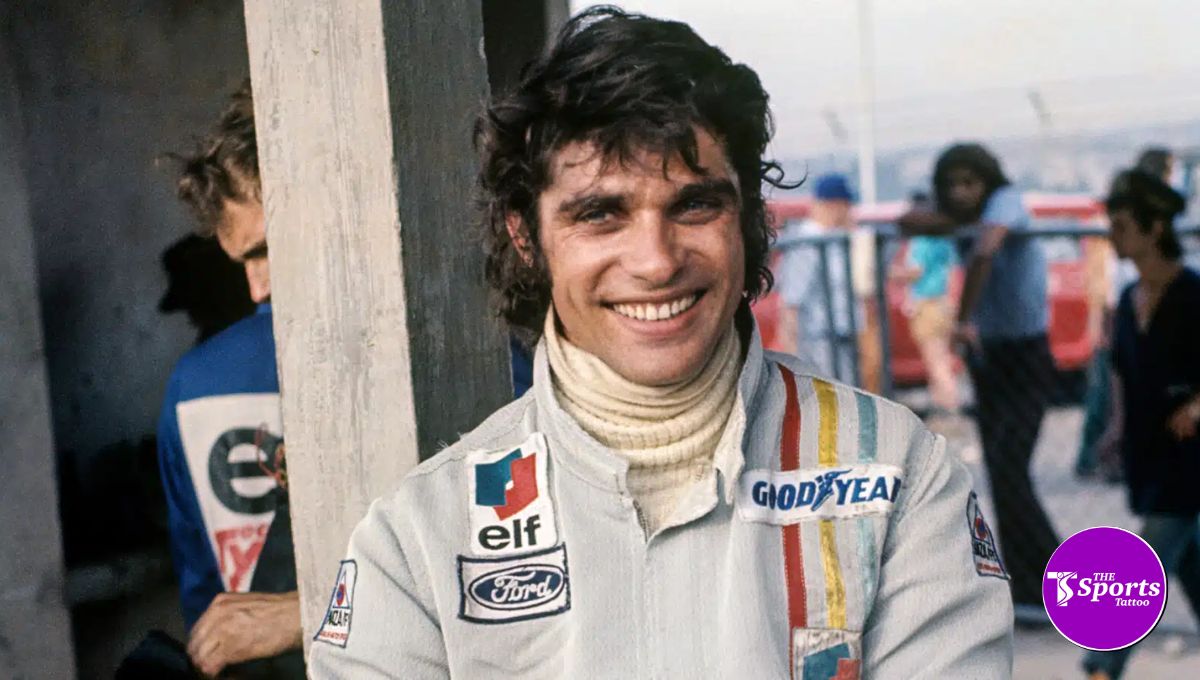Francois Cevert Biography: Albert François Cevert Goldenberg was a French Formula One racing driver who competed in the World Championship. He competed in 48 World Championship Grands Prix, winning one, finishing on the podium 13 times, and earning 89 career points. To know everything about his life, career, and other details, read this blog till the last.
Table of Contents
Francois Cevert Biography
Francois Cevert Biography: Albert Francois was born on 25 February 1944 in Paris, France. He was the son of Parisian jeweler Charles Goldenberg (1901-1985) and Huguette Cevert. Charles was a Russian-Jewish émigré moved to France as a child by his parents to escape the Tsarist autocracy’s persecution of Jews. During World War II, while France was under Nazi occupation, Goldenberg joined the French Resistance to avoid deportation to Poland since he was a registered Jew.
Charles and Huguette’s four children were registered with her surname (Cevert) rather than his to avoid drawing attention to themselves. Cevert’s father planned to rename his children Goldenberg once France had been liberated, but the family opposed it because they had been known as Cevert by then.

Francois Cevert Wiki
| Name | Franck Montagny |
| Date Of Birth | January 5, 1978 |
| Birth Place | Feurs, Loire, France |
| Died | 6th October 1973 (at the age of 29) |
| Height | 5’9“ |
| Weight | 77 Kg |
| Zodiac Sign | Capricorn |
| Profession | Racing Driver |
| Net Worth | $5 million |
| Car Collection | N/A |
Also Read: Franck Montagny Biography, Wiki, Height, Weight, Racing Career & Net Worth
Francois Cevert Career
François Cevert began his motorsport career on two wheels rather than four, racing his mother’s Vespa scooter against friends at the age of 16 before progressing to his own Norton at the age of 19. Cevert became interested in cars after completing his National Service. In 1966 he finished a training course at the Le Man’s school before enrolling in the Winfield Racing School in Magny-Cours. As the highest student at Winfield, he received the Volant Shell scholarship. The winner received an Alpine Formula Three.
His first season in F3, driving his prize Alpine did not go well. He needed more funds and knowledge to operate and maintain his car effectively. Cevert swapped in his Alpine for a more competitive Tecno car after securing sponsorship for the 1968 season. Cevert finally began to win races with his new ride, and by the end of the season, he was the French Formula 3 Champion, slightly ahead of Jean-Pierre Jabouille.
Following his victory in the French Formula 3 Championship, Cevert joined the works Tecno Formula Two team in 1969, finishing third overall and competing in the F2 class at the 1969 German Grand Prix. Formula Two was a great training ground for ambitious drivers at the time, as several elite Grand Prix drivers competed in the F2 class when their Formula One schedules allowed.
When Jackie Stewart struggled to pass Cevert in an F2 race at Crystal Palace the following year, he told his team manager Ken Tyrrell to keep a watch on the young Frenchman. This personal recommendation paid out in 1970 when Tyrrell required a new driver quickly, and Stewart’s recommendation was still fresh in his mind. Tyrrell later stated that Cevert’s recruitment to the Formula One team was due to “everybody saying it was (French oil company and Tyrrell sponsor) Elf, but it was really what Jackie said about him.”

When Johnny Servoz-Gavin unexpectedly retired from the Tyrrell Formula One team three races into the 1970 season, Tyrrell appointed Cevert as his number two driver, alongside defending World Champion Stewart. Cevert became the experienced Stewart’s loyal protégé for the next four seasons. After making his debut in Tyrrell’s second customer March-Ford at the Dutch Grand Prix at Zandvoort, he increased his pace and reduced the distance to Stewart with almost every race. He won his first World Championship point by finishing sixth in the Italian Grand Prix at Monza.
Cevert finished second in France and Germany in 1971, behind team leader Stewart, with the Tyrrell team now manufacturing their cars. The Frenchman then won his first and only Grand Prix in the season-ending United States Grand Prix at the newly expanded Watkins Glen race track. Cevert was only the second Frenchman to win a Formula One World Championship Grand Prix (Maurice Trintignant won in Monaco in 1955 and 1958) and was awarded 50,000 US dollars. It was the height of his career, propelling him to third place in the 1971 Drivers’ Championship, behind only Stewart and Ronnie Peterson.
Cevert, Stewart, and Tyrrell had high expectations for 1972 that were unmet. Cevert finished in the points only three times, with second places in Belgium and the United States and a fourth at his home race in France at the Clermont-Ferrand circuit. Cevert’s second-place performance in the 24 Hours of Le Mans in a Matra-Simca 670 with New Zealand’s Howden Ganley was a bright spot in an otherwise disastrous year.




